Orego-Stim®: Supporting Sustainable Egg Production
Achieving a Net Zero Status
Feed is the largest contributor to emissions, accounting for as much as 87% of an egg producer’s carbon footprint. Global sourcing of raw materials commonly incorporated within layer rations, such as soya, inevitably means feed is associated with a high carbon footprint. Whilst there is little that the producer can do about such emissions, application of specific on-farm practises can have an immediate, positive impact on both laying hen performance and a producer’s carbon footprint.

Vision 365 is a 10-year plan launched by the IEC to unleash the full potential of eggs by developing the nutritional reputation of the egg on a global scale. With the whole industry’s support, this initiative will enable us to build the reputation of the egg based on scientific fact, positioning eggs as an essential food for health.
Properties of 100% Natural OEO Support the Following Functions:
- Antimicrobial
- Anti-inflammatory
- Immunomodulatory
- Antioxidant
When produced from the whole oil, OEO contains up to 100 natural compounds which work in synergy to offer well-documented properties, all of which have a role in supporting optimal hen health and performance.
3 Ways Orego-Stim® Reduces Egg Carbon Footprint:
1. Optimal Hen Performance
Increasing laying rate by 5% has the potential to reduce emissions by 5%. In addition, extending persistence of lay, as well as improving production and egg mass during early lay, greatly reduces the overall carbon dioxide equivalent per kilogram of eggs. Producing just a dozen extra eggs per hen can have a significant impact.
In a recent European commercial study, Orego-Stim® supplementation resulted in 13 extra eggs per hen and a 9% increase in overall production.
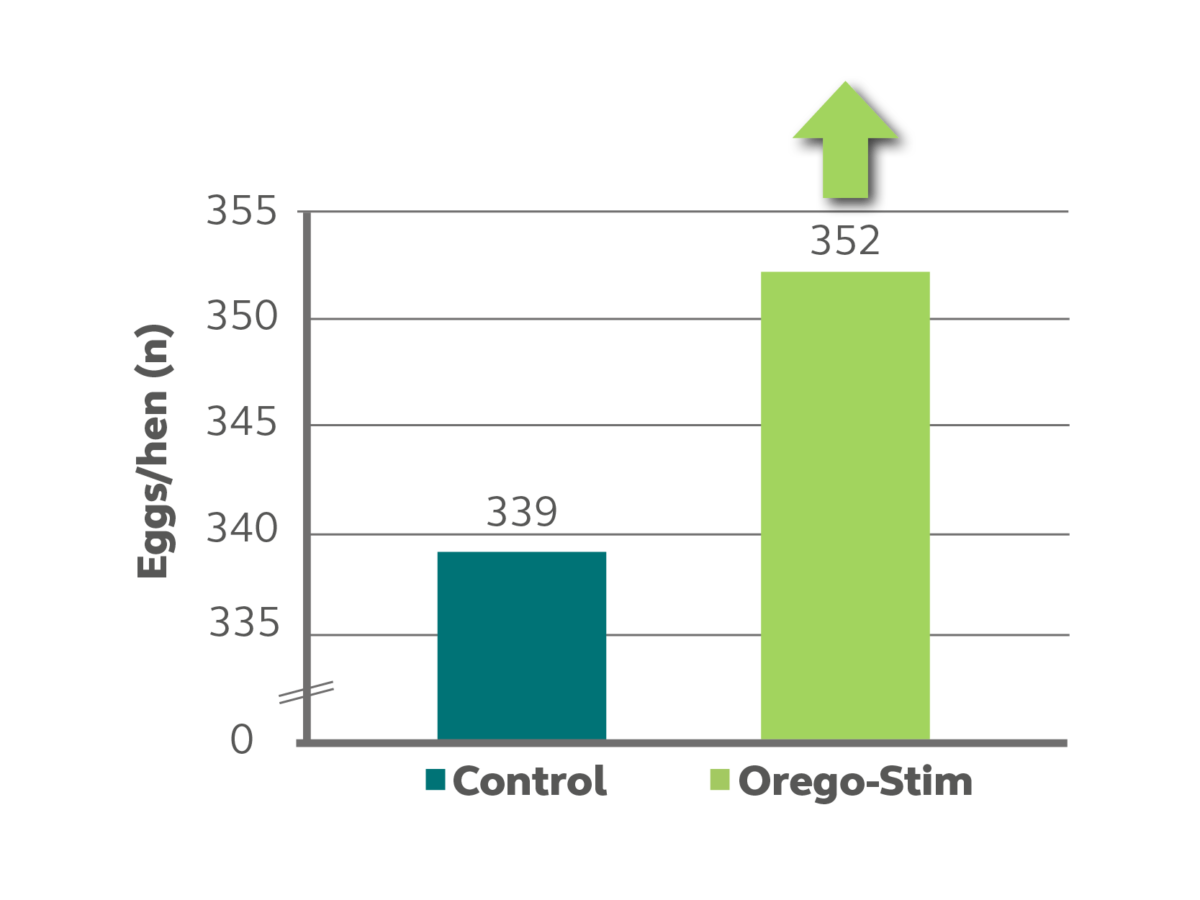
During early lay, Orego-Stim® supplementation also increased egg mass (18-23 weeks) by 84%, whilst lowering cumulative mortality by 0.14%.
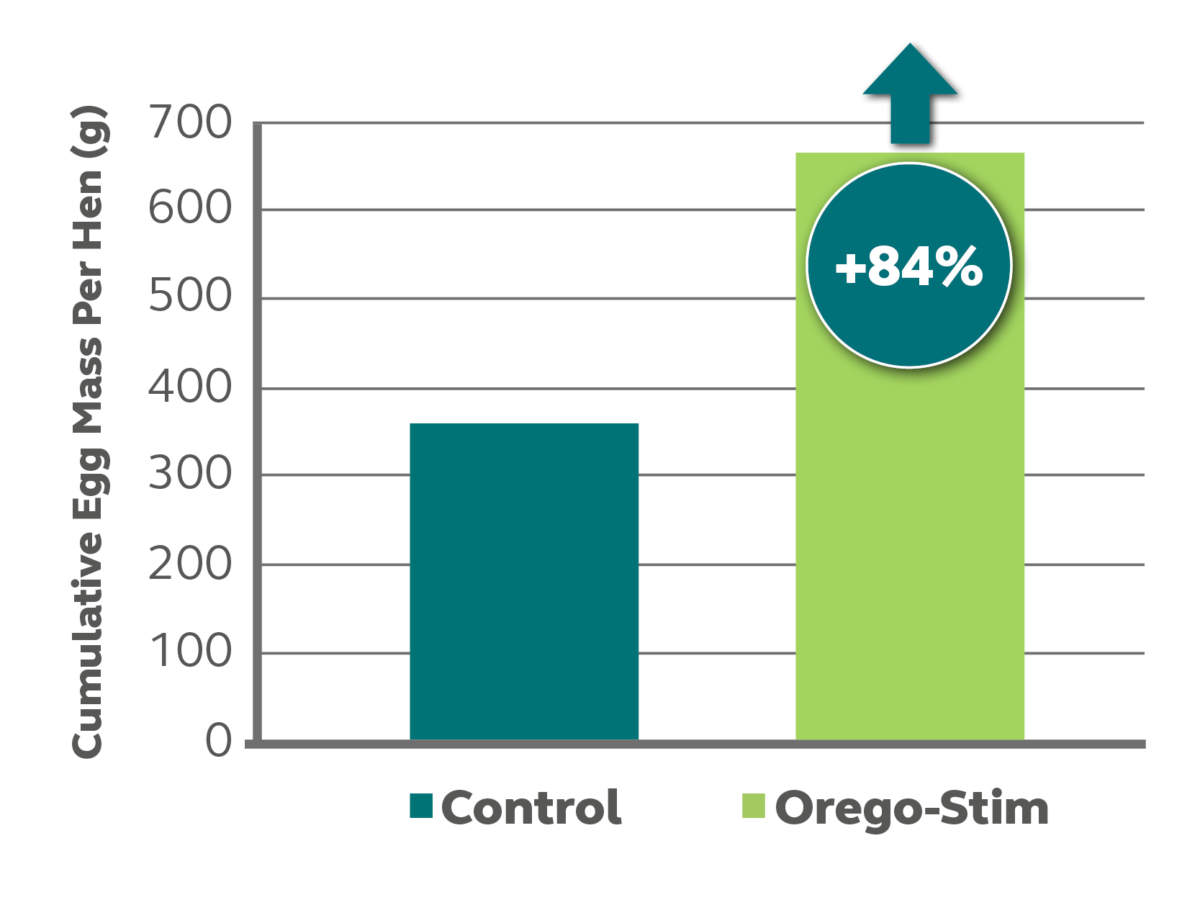
Orego-Stim® supports development and maintenance of a healthy gut, which can help to improve nutrient utilisation and feed efficiency.
Whilst this does not directly lower the emissions associated with feed production, if diets are better utilised, the overall carbon egg emissions will be substantially reduced. This is particularly true for proteins, as unused protein is excreted in hen manure, increasing environmental impact due to resultant nitrous oxide emissions.
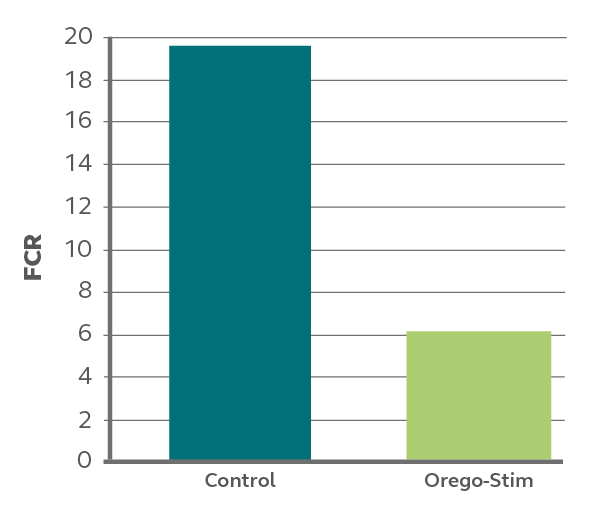
Laying hens are particularly inefficient during early lay.
In a recent commercial trial undertaken in Mexico, Orego-Stim® substantially improved feed conversion ratio (FCR) from 20-23 weeks of age.
Poor feather cover has also been shown to decrease efficiency of feed utilisation, with poor feather coverage on the back and neck resulting in higher feed intake and lower feed efficiency.
Feather loss over a large part of the body disrupts the process of thermoregulation and energy from the feed which would be used by the hen for laying eggs, is instead used to generate or expel heat. Orego-Stim® supplementation has been shown to improve feather cover by 5% and reduce feather loss in the back/vent and head/neck areas.
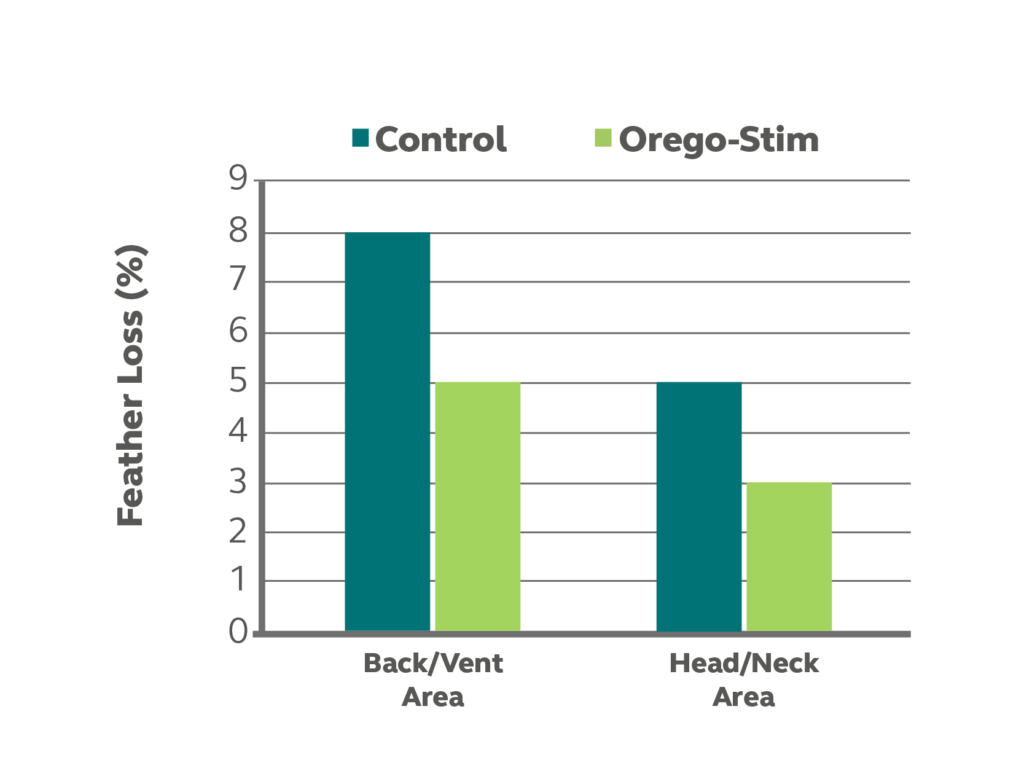
- 3. Reduced Mortality Rates
-
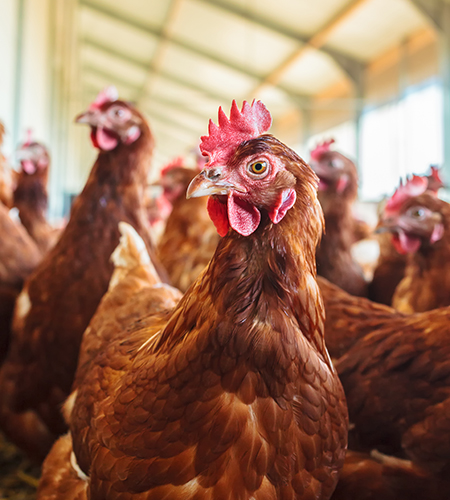
Increasing the number of productive birds during the flock cycle results in a greater volume of eggs produced. Therefore, just a 2% reduction in overall mortality can reduce the egg carbon footprint by 1%.
Orego-Stim® supplemented hens had a 2.2% lower cumulative mortality rate compared hens fed control diets in a recent European commercial study.
Profitable Return on Investment
Orego-Stim® offers a natural and profitable solution for producers which is easy to incorporate into feed and water. Supplementation has resulted in a return on investment of 13.6:1 when fed during rearing and early lay, and a return on investment of 5.5:1 when supplemented throughout the entirety of lay. Not only is this additive capable of boosting performance and profitability, but it is an ideal solution in supporting the future of greener, more sustainable egg production.


Leave a comment